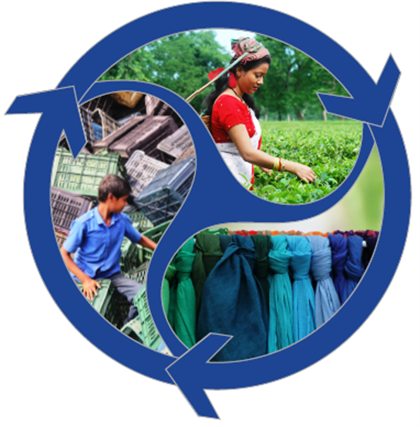
In addition to the Guidelines for Social Life Cycle Assessment (S-LCA) of Products and Organizations published by UNEP Life Cycle Initiative last year, the Methodological Sheets for Subcategories have now been published.
The Methodological Sheets provide an aid to the implementation of an S-LCA. It supplies information on each subcategory of the six stakeholder groups defined in the Guidelines. This includes, among other things, the definition of the subcategories, the policy context, and the connection to the Sustainable Development Goals. In addition, the Methodological Sheets suggest generic as well as specific indicators that can be considered when conducting an S-LCA. The aim is to provide a recipe to achieve more consistency in the application of S-LCA in the future.
The methodology sheets can be found here.
INaB is part of the new Collaborative Research Center (SFB) of the German Research Foundation (DFG) SFB/Transregio 339 “Digital Twin Road – Physical-Informational Mapping of the System ‘Road of the Future'”.
Issues such as durability, efficiency, safety and sustainability represent global challenges in road transport. In order to counteract these and to continue to ensure the mobility of people and goods in the future, scientists from TU Dresden and RWTH Aachen University are developing an intelligent system that virtually maps the road infrastructure and thus enables the analysis and control of efficient and sustainable roads in the future.
Our task as INaB is to set up an iterative Life Cycle Sustainability Assessment (LCSA) within the framework of a Cyper Physical Model. In this way, the influence of processes and materials can be determined at the earliest possible stage and road construction can be made sustainable on a life cycle basis.
The company enumion is looking for a student assistant to support the team at the location in Cologne. enumion is a management consultancy focusing on energy consulting and sustainability.
The focus of your tasks will be on energy audits and building simulations. Further activities are the preparation of energy data for energy consumption analyses, the work with the software DIN V 18599 and the profitability calculation of energy efficiency measures. In addition, enumion offers active participation in ongoing projects.
The working hours are 8 to 12 hours per week and can be arranged flexibly. Apply here now.

The International Smart Cities School 2021 is now open to all people involved and interested in the debate regarding the contemporary urban question (PhDs or graduate students, freelancers, companies, public employees, etc.).
Registering for the school is free of charge but on a selective basis (max. 30 participants). The participation form is available on the school website.
Participation can also be partial (one or more webinars without co-working laboratory).
The BMW Group offers an internship for students in the area of purchasing and supplier network. As part of the internship, the Sustainability department focuses on providing support in the energy supply chain. Other activities would include CO2 implementation reporting and support in coordinating sustainability goals in the supply chain.
More information on BMW Group Karriere
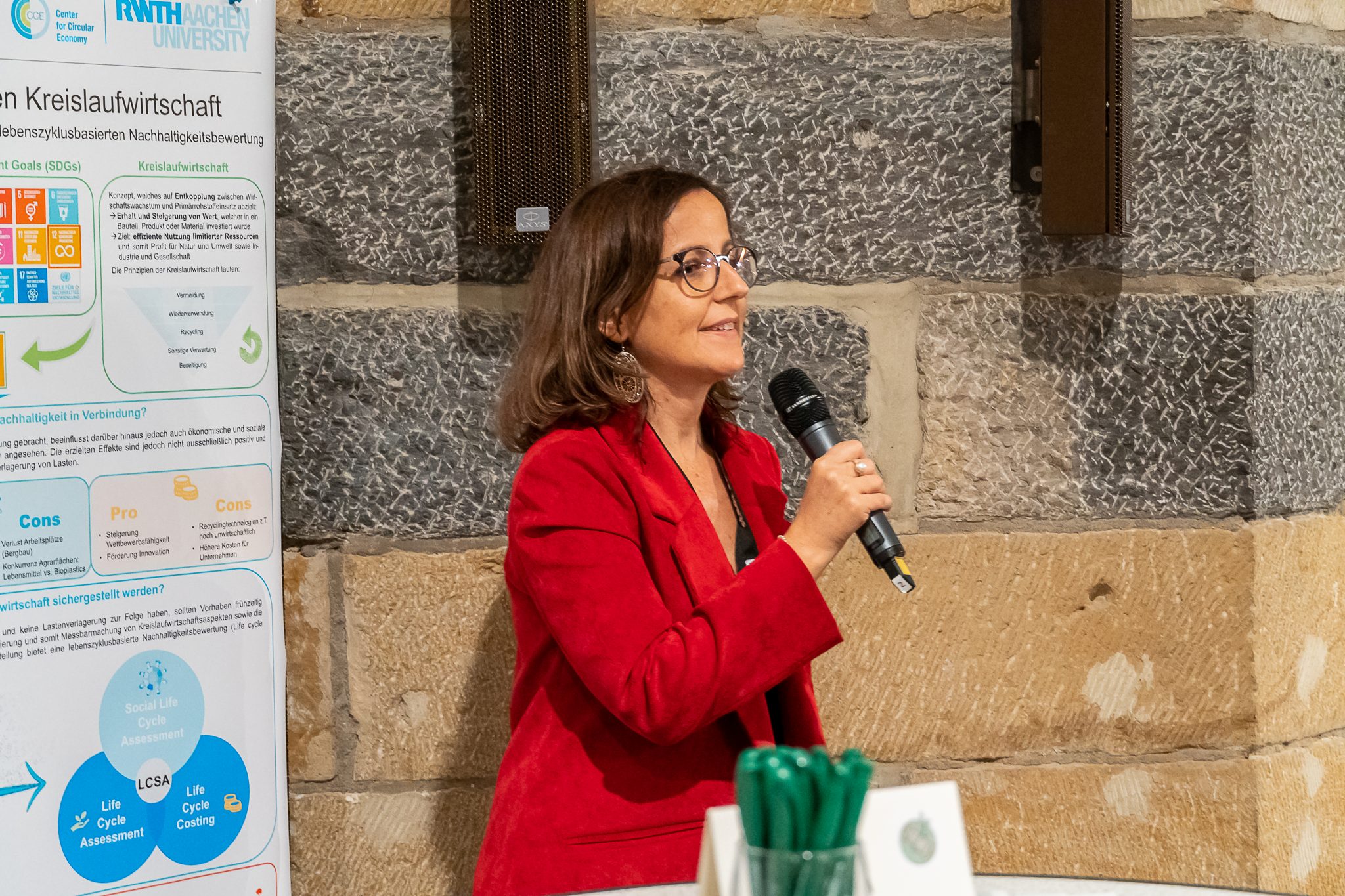
The recently founded Center for Circular Economy at RWTH Aachen – known as CCE – pools the University’s expertise on circular economy.
For example, it elevates RWTH’s distinctive technical and ecological expertise in recycling and also integrates social affairs, business, science, and digitalization. “In various projects, RWTH has been dealing with the topic of circular economy directly or indirectly for decades. In view of the existing global challenge, it is imperative that we synergistically and systematically apply the expertise from all across the university by uniting it under one roof,” emphasizes RWTH Rector Professor Ulrich Rüdiger.
Right at the beginning, several members of the Center for Circular Economy participated in the event when mayor Sybille Keupen signed the “Circular Cities Declaration”. As sixtieth European city, the city of Aachen is now the second German city that joined the initiative. At the event, the Center members presented their know-how on circularity. Professor Marzia Traverso, e.g., presented challenges of circular economy related to sustainability aspects and how to measure and ensure a sustainable circular economy.
More information on Circular Cities Declaration and Center for Circular Economy.
One year after the kick-off of the TeTraPHar Africa project, the Institute for Sustainability in Civil Engineering (INaB) gladly welcomed Francis Mwaijande from Mzumbe University (MU) and Tomson Akankwasa from the Uganda Cleaner Production Centre (UCPC) to Aachen. TeTraPHar Africa is a BMBF funded project submitted and coordinated by INaB on behalf of RWTH University.
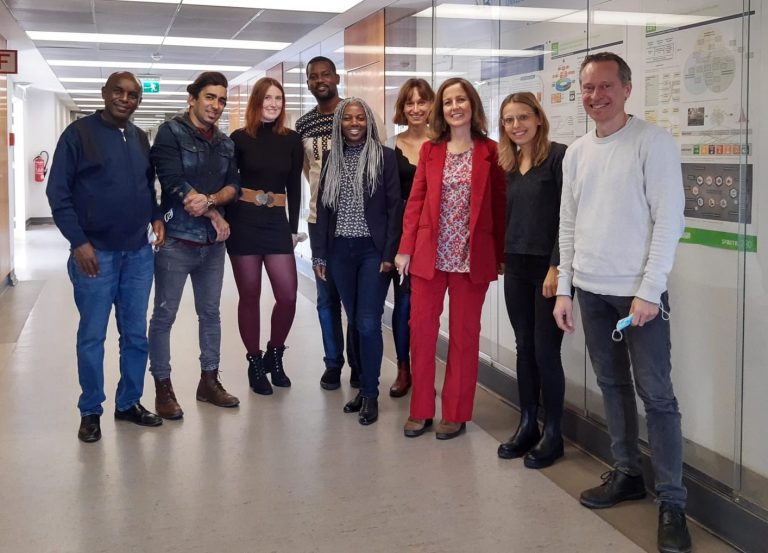

On the 7th of December the SLC Alliance will host a hybrid event entitled “Implementing the New UNEP 2020 S-LCA Guidelines”. This event will take place at the Residence Palace in Brussels and will simultaneously be accessible via an online platform. Registrations are now open until December 1. The programme will start at 13:30 and end at 18:30, with workshops in different languages.
On this year’s Marmomac and Athesis, Elisabetta Palumbo and geologist Piero Primavori talked about sustainability and research for natural stone and stone quarrying. They highlighted the importance of waste being reused to transition towards a sustainable production.
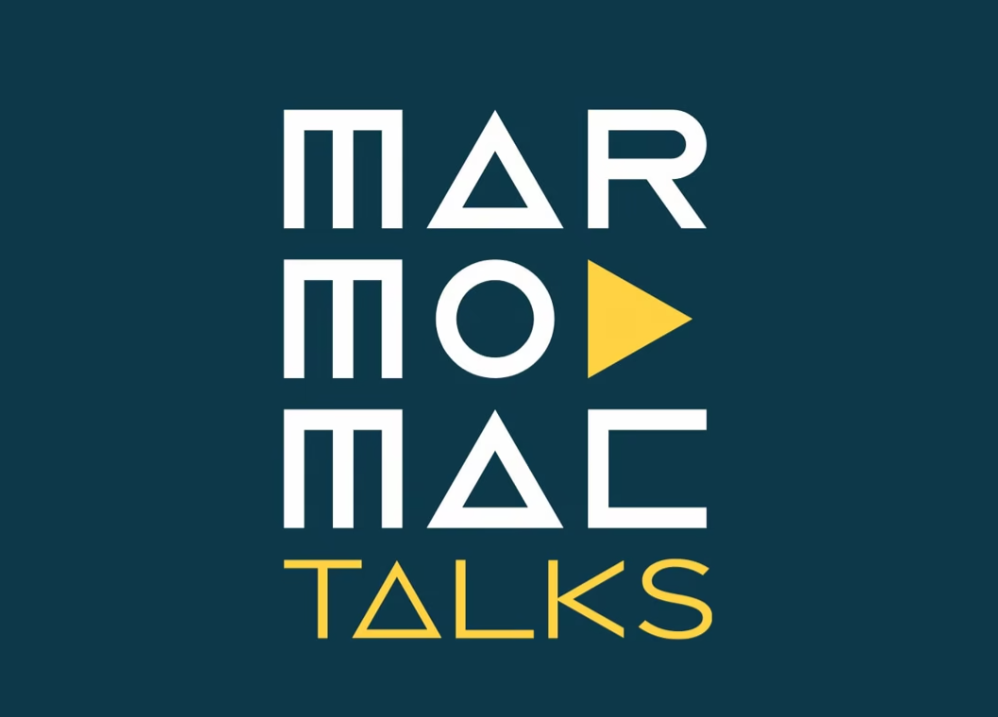
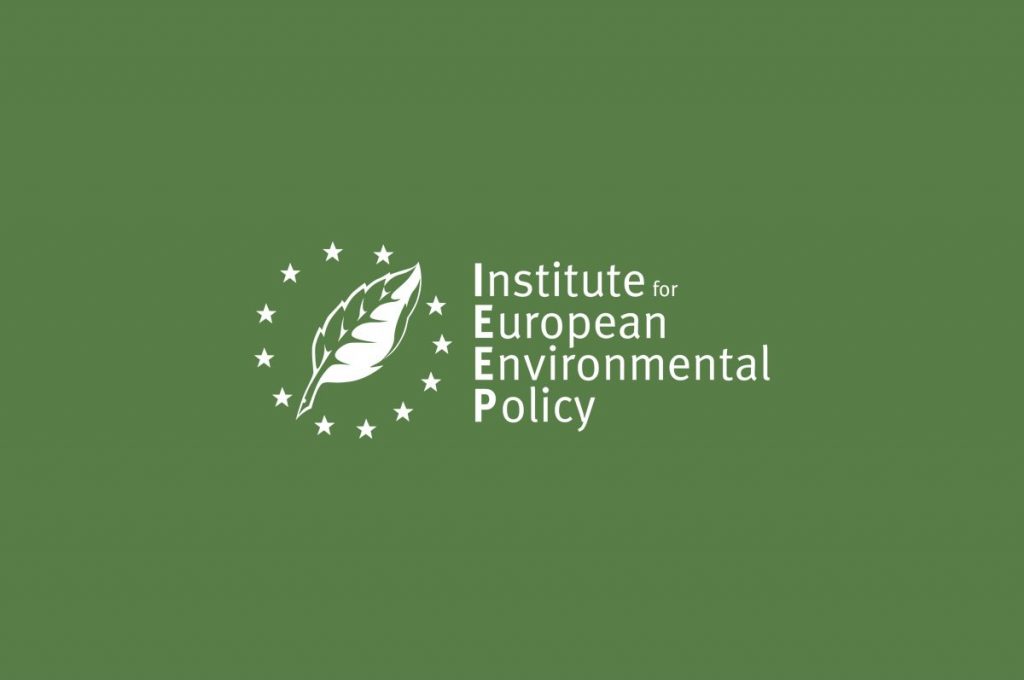
The necessity to strengthen the science-policy interface for sustainable investment has recently been reinforced by IPCC’s AR6 report. Basing policies that serve current and future generations on scientific knowledge is a lesson learned from the the EU Taxonomy process.
In cooperation with Nora Hiller, Ben Allen and the Institute for European Environmental Policy (IEEP), Marzia Traverso gives recommendations for improving the use of science and evidence in decision-making.

In this online certificate course, you will learn to identify social hotspots in your company and your supply chain. This will enable you to make concrete improvements towards a socially responsible and holistically sustainable company.
Study format: Online Certificate Course
Duration: 2 modules, each half-day except for the first-day
Teaching: Module 1: 15.11.2021 full day, 22-24.11.2021 half days each; Module 2: 17.+18.01. and 20.+21.01.2022 half days each
Credit Points: 2 ECTS (50 hrs. workload)
Course fees: 3.200 € incl. course material & social programme
Qualification: RWTH Executive Certificate
Language: German
YES! is one of the largest school competitions on economic and social challenges in Germany for grades 10-12.
INaB as a partner of YES actively supported the team from Geneva, as well as the team from Stolberg and is very happy about the International School of Geneva’s entry into the finals, which will take place in September (22.-24.09.2021).
The International School of Geneva presented their idea “Green Village”, which included several elements to build a sustainable community housing system. Whereas the Ritzefeld Gymnasium from Stolberg focused on the idea of “A Green Line for a greener future” (a green discovery route through Stolberg), proposing sustainable attractions to improve tourism in cities.
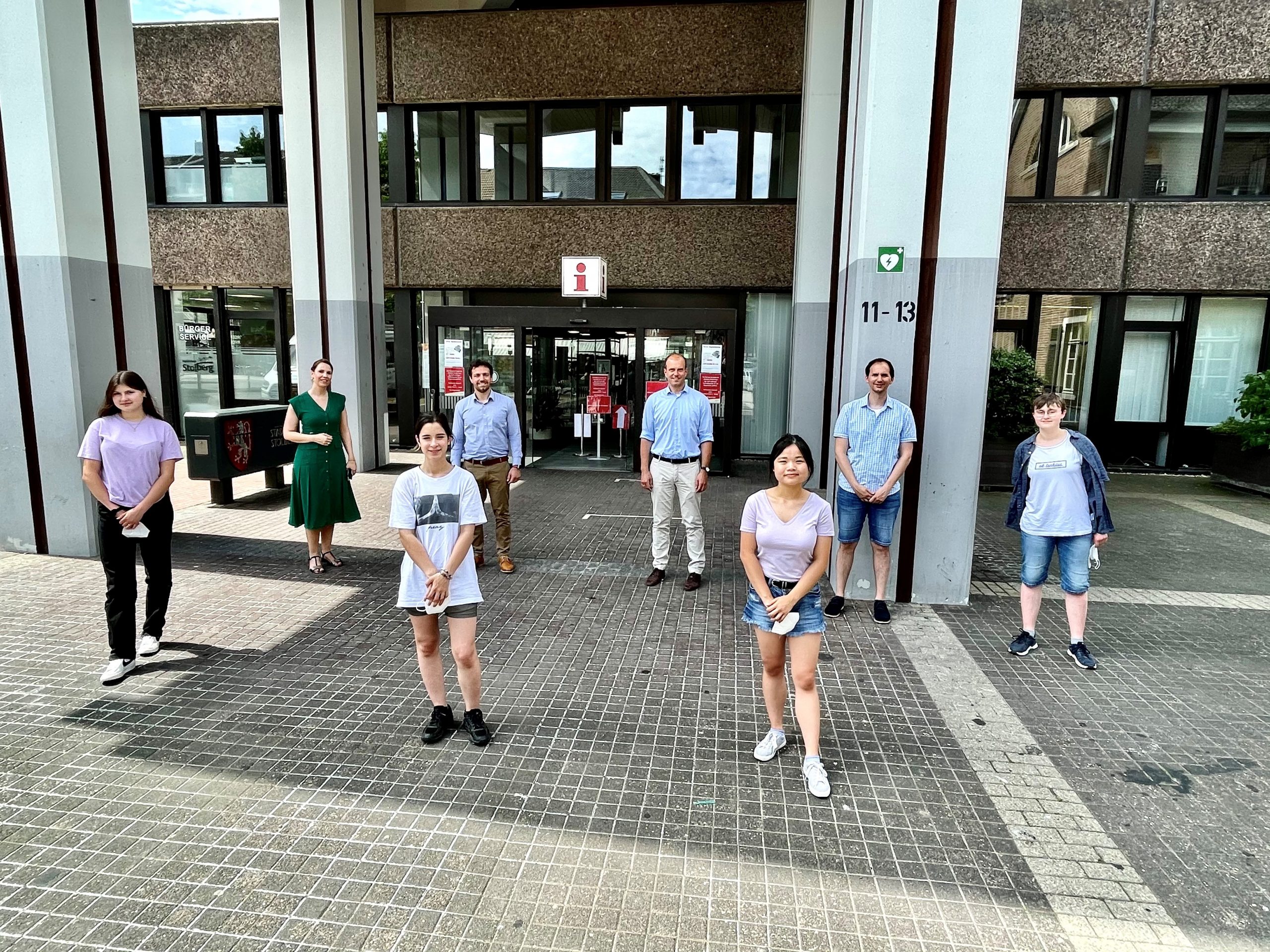
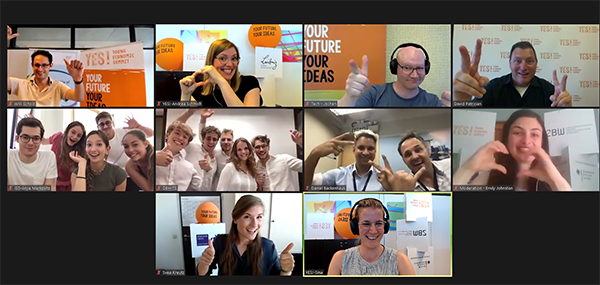
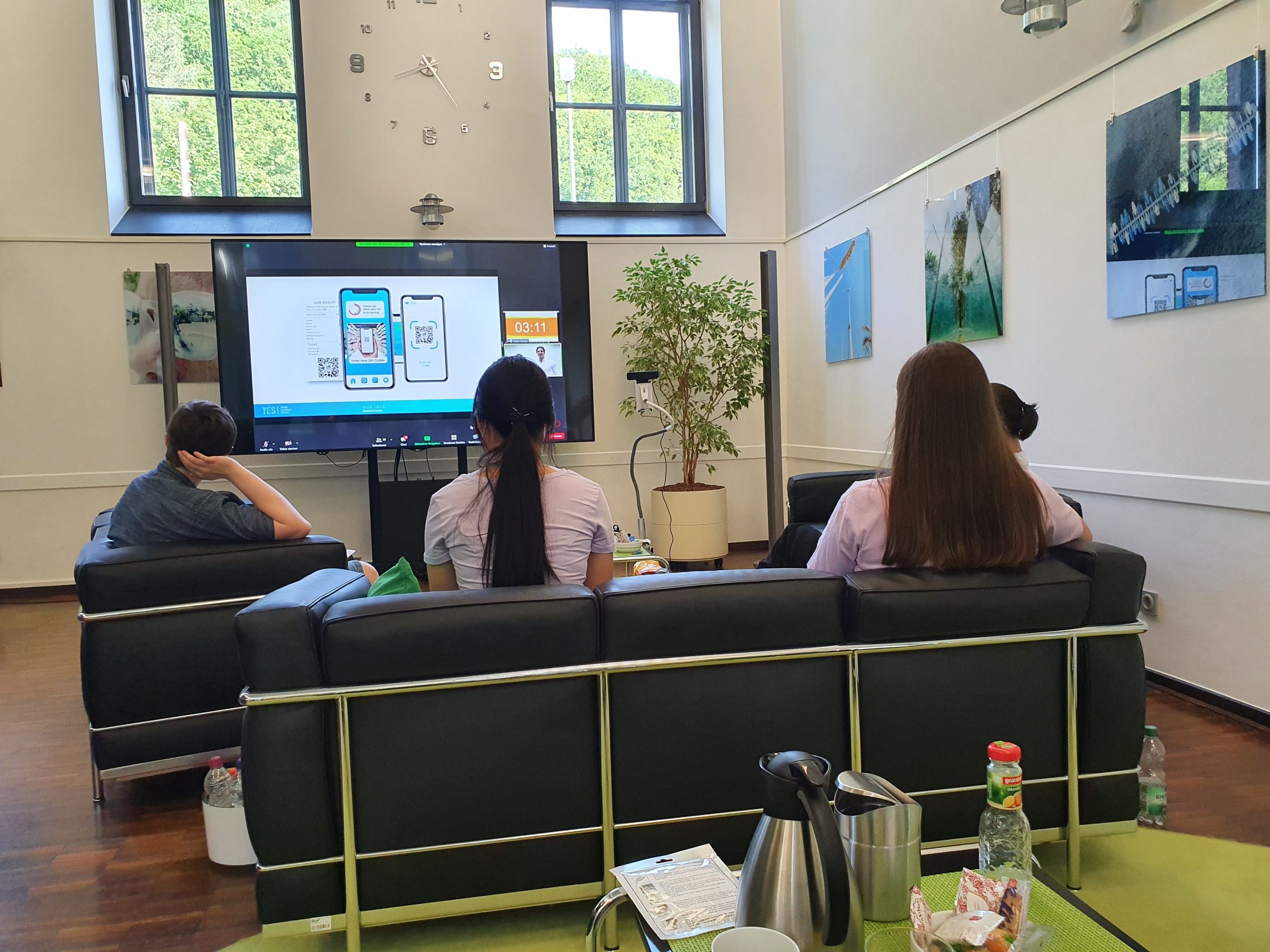
© YES! – Young Economic Summit
Innovative building envelopes based on a modularly functional textile facade can be used to reduce energy consumption and generate electricity; in addition, the facade filters nitrogen oxides from the air.
DG Research & Innovation published the summary policy report from the workshop “EU Sustainable Finance Taxonomy: an opportunity for sustainable industrial R&I”. This report summarises the main session discussions and input gathered from the participants in the Q&A sessions.
The main objective of the workshop was to identify key aspects on how to place sustainable finance and the EU taxonomy in the context of industrial R&I and the activities of the European Partnerships, and to help advance the R&I agenda of European industries towards the Green Deal’s objectives.
More than 120 participants from both the public and private sector took part in the discussions with the speakers and gave their views and perspectives in three moderated panel sessions that outlined the way forward. Report
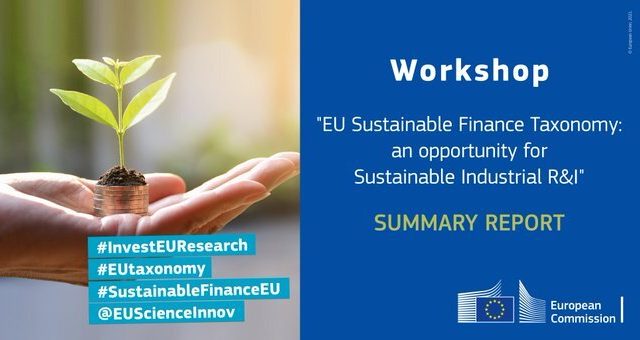
The call for abstracts of the Life Cycle Management Conference 2021 is now open https://www.lcm2021.org/call-for-abstracts.
We invite you to submit a paper for the Social Life Cycle Assessment session and Life Cycle Sustainability Assessment in Construction and Renovation Buildings.
Please submit your Abstract by April 12th, 2021.
Save the date for the project presentation and discussion about the first results of the LIFE MAGIS Project. The partners of LIFE MAGIS will discuss the role of environmental quality and communication in the development strategies of the sectors involved.
The new project brochure for LIFE MAGIS is now available! Go check it out!
Meet Marzia Traverso and Ben Allen, rapporteurs of the Technical Working Group.
Together with Nathan Fabian, they explain their work around #EUtaxonomy and how experts and stakeholders can contribute.
